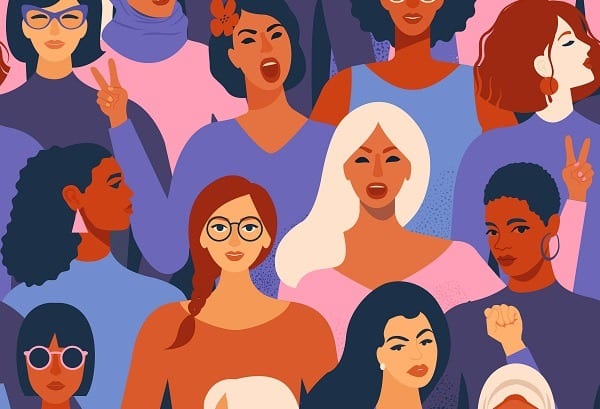Such groups are generally staffed by a significant proportion of volunteers or personnel who work for minimal financial reward. This is often the case when it comes to women who work to support and advance conditions for women.
After many of the Gender Bureaus across Australia had been abolished during the 1990s a network of six National Women’s Alliances were established.
These are the Australian Women Against Violence Alliance (AWAVA), Economic Security for Women (eS4W), the National Aboriginal and Torres Strait Islander Women’s Alliance (NATSIWA), the National Rural Women’s Coalition (NRWC), the more recent Harmony Alliance for Migrant and Refugee Women, and the Equality Rights Alliance (ERA).
Overall these agencies represent 180 women’s organisations with the ERA, the largest of the alliances, representing 61 of these groups. The networks operate with minimal government funding, a small staff and a big agenda.
Many of the women’s organisations represented by the alliances only function because of the persistence and commitment of their volunteer base. Some of the larger and influential of the groups in the ERA are YWCA Australia, the National Foundation of Australian Women, Australian Women’s Health Network, National Council of Single Mothers and their Children and the Women’s Electoral Lobby.
The role of the Alliances is to bring together women’s organisations and individuals from across Australia to share information, to identify issues that affect their membership, to seek out solutions, and to engage actively with the Australian government on policy concerns.
The alliances are also an important component to the non-government sector at the UN Women meeting held in New York on an annual basis.
Parallel to this – is a network of volunteer groups that work on a regular basis across Australia to support and sustain women and their families in a much more hands-on way.
Some wonderful examples that have sprung up over recent years, is St Kilda Mums in Melbourne, Mummies Paying it Forward in Sydney, and Roundabout Canberra in the ACT. All of these groups collect donated items for babies and families, if necessary renovate or restore, and repackage to hand on to families in need.
The Australian Breastfeeding Association have worked for years to bring mums together and provide advice and support particularly during those early months after the birth. And more recently there has been a springing up of networks that provide doula support for pregnancy, birth and beyond for women in need, one such example Birth for Humankind.
The Australian Motherhood Initiative for Research and Community Involvement (AMIRCI) is a member agency of the aforementioned ERA. This is a network of scholars, writers, activists, policy makers, educators, artists and professionals whose work explores the experience of women as mothers; mothering and motherhood.
AMIRCI will be holding its 12th biennial conference at the University of Sydney, July 10 to 12, under the theme ‘Motherhood in an Age of Neoliberalism’.
Keynote speakers include Eva Cox, Petra Bueskens and Renate Klein and topics covered are family law, maternal rights, universal basic income, inadequate maternity services, surrogacy and much more.
“The recognition and redistribution of the unpaid work that mothers perform in our society is the unfinished business of feminism.” (Andrea O’Reilly)
Professor Andrea O’Reilly will be presenting a Public Lecture on the subject of ‘maternal regret’ Wednesday 10th July.
It is this continuing, and most often volunteer work, that builds on necessary day-to-day household chores that sustain families, significantly contributes to social capital, but also furthers agendas for change. It’s not uncommon to hear the phrase ‘the future is female’ and if this is shorthand for families that thrive and communities that are strengthened — bring it on.


